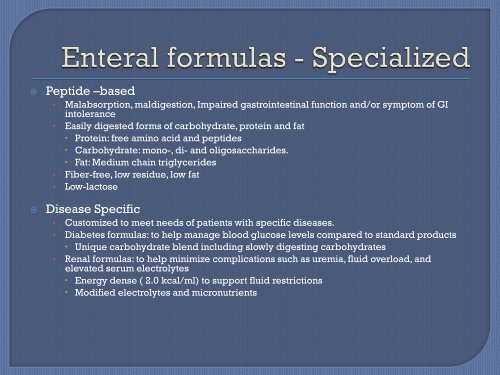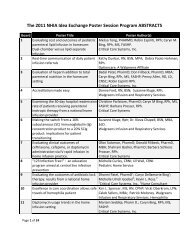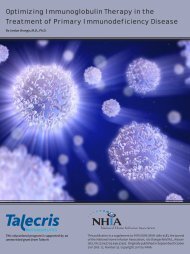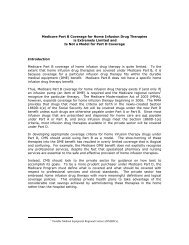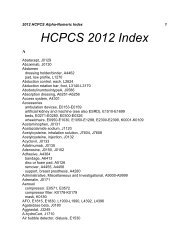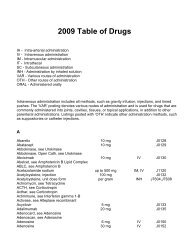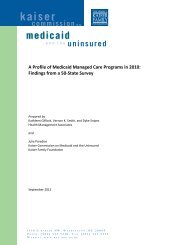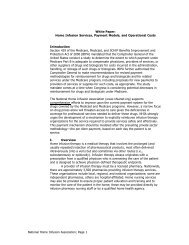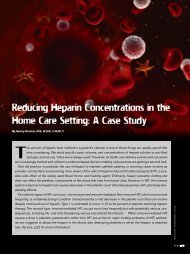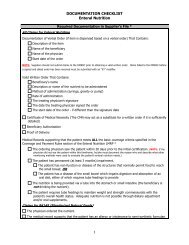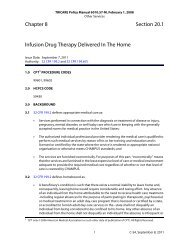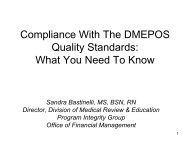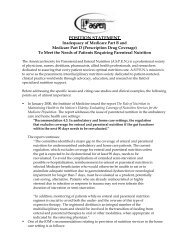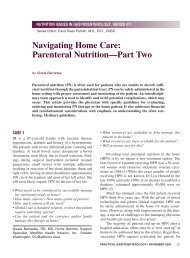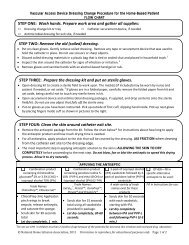Transitioning from Parenteral Nutrition: Steps to Successes! - NHIA
Transitioning from Parenteral Nutrition: Steps to Successes! - NHIA
Transitioning from Parenteral Nutrition: Steps to Successes! - NHIA
You also want an ePaper? Increase the reach of your titles
YUMPU automatically turns print PDFs into web optimized ePapers that Google loves.
Peptide –based<br />
• Malabsorption, maldigestion, Impaired gastrointestinal function and/or symp<strong>to</strong>m of GI<br />
in<strong>to</strong>lerance<br />
• Easily digested forms of carbohydrate, protein and fat<br />
• Protein: free amino acid and peptides<br />
• Carbohydrate: mono-, di- and oligosaccharides.<br />
• Fat: Medium chain triglycerides<br />
• Fiber-free, low residue, low fat<br />
• Low-lac<strong>to</strong>se<br />
Disease Specific<br />
• Cus<strong>to</strong>mized <strong>to</strong> meet needs of patients with specific diseases.<br />
• Diabetes formulas: <strong>to</strong> help manage blood glucose levels compared <strong>to</strong> standard products<br />
• Unique carbohydrate blend including slowly digesting carbohydrates<br />
• Renal formulas: <strong>to</strong> help minimize complications such as uremia, fluid overload, and<br />
elevated serum electrolytes<br />
• Energy dense ( 2.0 kcal/ml) <strong>to</strong> support fluid restrictions<br />
• Modified electrolytes and micronutrients


